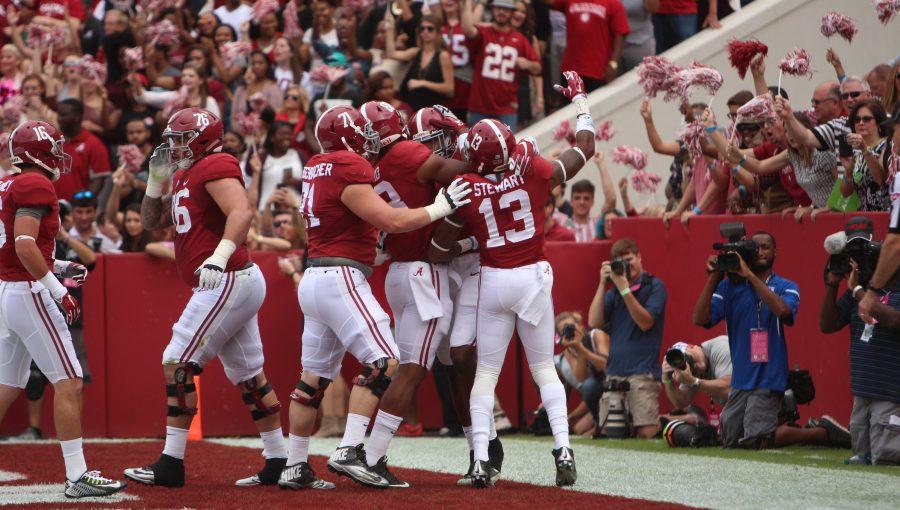The 2015 national champion Crimson Tide had more than its share of those season-defining moments, the ones that only grow larger in retrospect. In the evening of Oct. 24, 2015, Alabama’s offense found itself staring down the barrel of a loss to rival Tennessee, trailing 14-13 late in the fourth quarter, 71 yards from the end zone. A second loss on the season would have been the death knell for Alabama’s title hopes, hanging by a thread already.
Up to that point, the Alabama passing game had been struggling to find its footing. Quarterback Jake Coker had thrown seven interceptions on the season, including one earlier in the game. His completion percentage had bottomed out in the loss to Ole Miss, at 46 percent, but had been steadily increasing since he had secured his starting job. If the Crimson Tide had any championship aspirations, that was the time for Coker to click.
“We had that quarterback battle going on and it was kind of distraction,” receiver ArDarius Stewart said. “When we got those things sorted out we could focus on the bigger things.”
He started that drive by taking a sack.
One play later, Coker found Stewart for what was then the most important play of the receiver’s career, a perfectly thrown pass and a leaping, finger-tip 29-yard catch.
“We just needed something big to happen so we made it happen,” Stewart said. “When we’re down in a clutch situation, you kick into survival mode.”
With momentum, the Crimson Tide turned to its Heisman-winning running back, Derrick Henry, reputed for his game-ending strangling drives. On two runs, he made four yards, to the Tennessee 40-yard line.
Third-and-six, down one, well out of field-goal territory, a few minutes on the clock, and a passing down for a passing offense that was, at that point, an afterthought to many.
Coker dropped back, looked left, and went straight to freshman Calvin Ridley, matched up against Tennessee’s aggressive cornerback, Cam Sutton. Ridley lept over Sutton, hauling in a 15-yard, game-saving, season-saving, championship saving completion.
“It didn’t really feel big for me personally,” Ridley said. “I just wanted to help my team win so I was just glad to be able to keep the drive alive so we could go ahead and punch it in.”
Three plays later, they did – Henry, 14 yards over left end, giving Alabama a 19-14 win, its ninth straight over Tennessee.
Months later, on the eve of the national championship game, offensive coordinator Lane Kiffin and his receivers pointed to the Tennessee game as the first time the passing game was firing on all cylinders. In the College Football Playoff, that passing offense would catch fire, giving the Crimson Tide the push it needed to win its 16th national championship.
“For Jake and the two young kids in Calvin and ArDarius, I think you go back to the Tennessee game,” Kiffin said. “An offense is fragile and no matter talented you are, until you really get that confidence and you feel that, it’s harder to develop. And I think in that game because of making plays – this is a defensive team and is still a defensive team – but they made plays to keep that drive alive for us to go down and score and eventually win the game. That was very big.
“I kind of feel from that point they’ve taken off, even though there’s games we haven’t asked them to do as much, they’ve still, in every game since, I feel like they’ve made impact plays, down-the-field plays, especially as you look at the games played in the last three games – Auburn, Florida and last week. All three of those games, there were a couple throws downfield, a couple plays downfield, that were not made in the first half of the season, and that’s the difference in the team. We’re still the same as always were up front. It’s those guys making plays that have changed the dynamic of the offense.”









